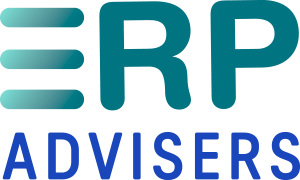Home | 5 Phases of Planning Your ERP System
Choosing a good ERP system isn’t just enough; it is also vital for every organization to have a laid down procedure of how to plan this system. Following a structured approach to planning from discovery, process analysis and planning to Going-Live and support gives the organization a better opportunity to realize the full potentials of the software.
5 Phases of Planning Your ERP System
There are essentially five stages of planning your ERP system, and they include the following:
- Discovery, Process Analysis, and Planning: Before searching for a solution, it is essential to carefully conduct an inventory of the organizations need. This also includes creating a group that consists of employees from different departments who make use of the ERP system. The overall aim of doing this is to have a comprehensive understanding of what the organization needs, challenges, tools, and resources are. An essential part of this stage involves group members having a meeting to develop a comprehensive project plan that will serve as a guide all through the project planning process.
- System Design: This stage involves designing a new enterprise system and mapping out ways of using the system to meet the need of an organization. In this stage, the project and implementation teams work together to map-out various configurations for new systems, documenting standard procedures and defining new roles for the organization.
- System Build-out: This stage involves the development and configuration of a solution customized using the specification listed in stage two to meet the need of an organization.
- Training and Testing: Once the new system design has been deployed for use, it is essential to carry out a training program that addresses the needs, training scope and schedules of the organizations. While some employees may need just one-day training others may benefit from three or four days of training. In addition, it is vital to ensure that the system is tested thoroughly before rolling it out company-wide.
- Go-Live and Support: The final stage involves making the solution Go-Live for use. There is also a need to provide support at least for the first one month to employees who might be using the system for the first time. The project team must be available to answer questions that may arise. In addition, once the ERP system goes live, the role of the project team changes, all they need to do is provide adjustment and changes to the system configurations when needed.
Finally, an ERP system is of great importance to every organization; it has the capability of transforming how people work, streamlining task, automating actions and optimizing processes. As stated earlier, having a good ERP system isn’t just enough, there are laid down processes that must be followed when planning your EPR system to ensure you get maximum value out of your ERP investment. At ERP Advisers, we will be there every step of the way during the implementation of new technology in your business. We will work with you to not only improve your services and processes but to also improve your bottom line.









